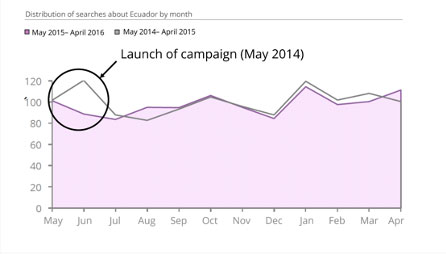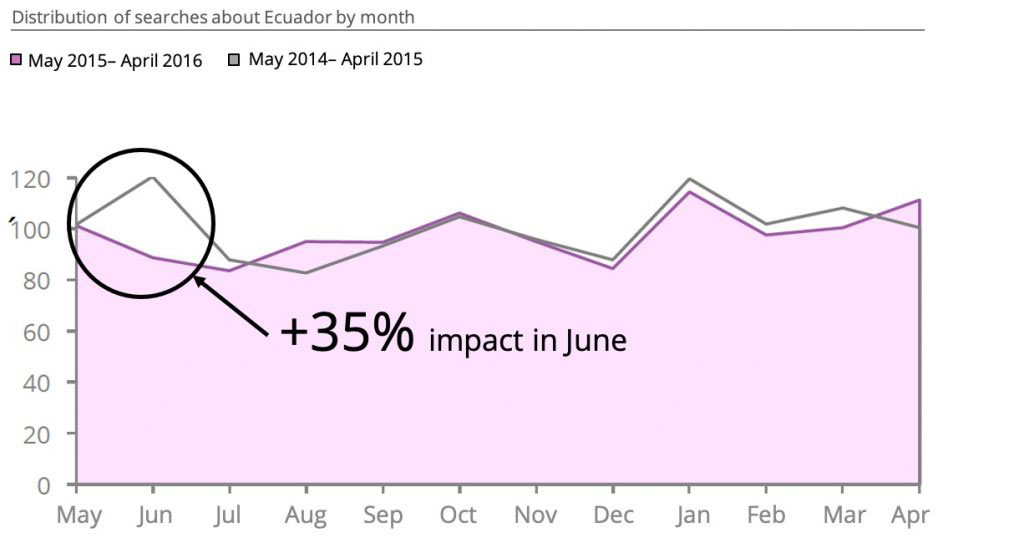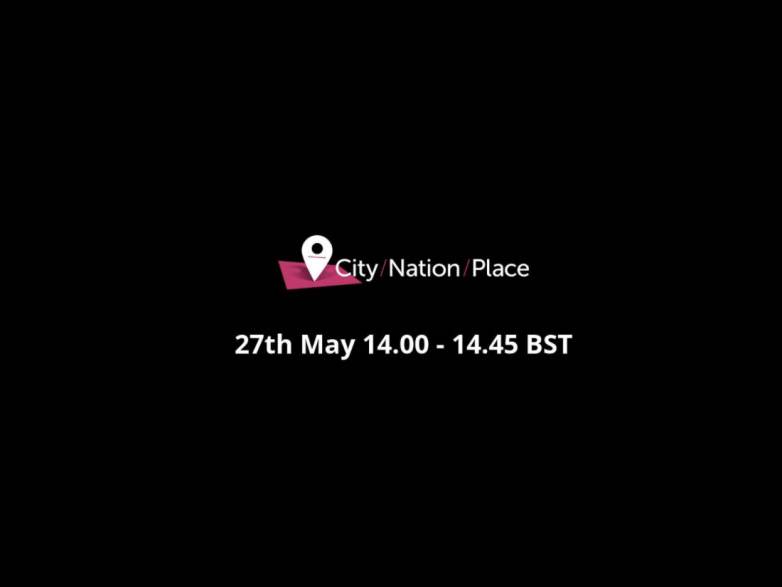Online searches towards Ecuador during the brand launch spiked up by 35% worldwide.
Marketers are buzzing around on how to measure the effectiveness of a banner displayed on a street, stadium, or even in a classroom. The ones who sell you the display place will tell you with ease – we know how many people entered the room or how many people passed the commercial on the street – that’s how many saw your commercial. But is it a qualitative KPI? Reveal interesting facts about online search behaviour in this country brand case study.
Online searches - the new marketing KPI indicator.
There are different indicators through which it is possible to measure new policies, marketing, or promotional efforts, like ROI, media reach, social media interactions, website traffic, etc. But proactive interest, the “act of searching” for information about a particular place – country, region, or city, is the one left behind or not yet widely discovered.
It is vital to measure the searches because nowadays, the primary way of searching for information is through various search engines. The “act of searching” can be triggered by any number of things, including something one may have read in a newspaper, heard in a conversation or out of simple curiosity. “Searches” represent the actual level of interest in a country and therefore demonstrate a country’s genuine appeal. If measured, “searches” can also highlight interests one may have concerning any specific destination or place.
“We can now measure the effectiveness of analysing the behaviour of the potential market “before” and “after” the policy implementation event. We can see advertising or marketing efforts online and offline by measuring the volume of searches for a specific destination on a monthly basis over a two or four year period."
— Gonzalo Vilar, Partner and Head of Big Data at D2 - Analytics
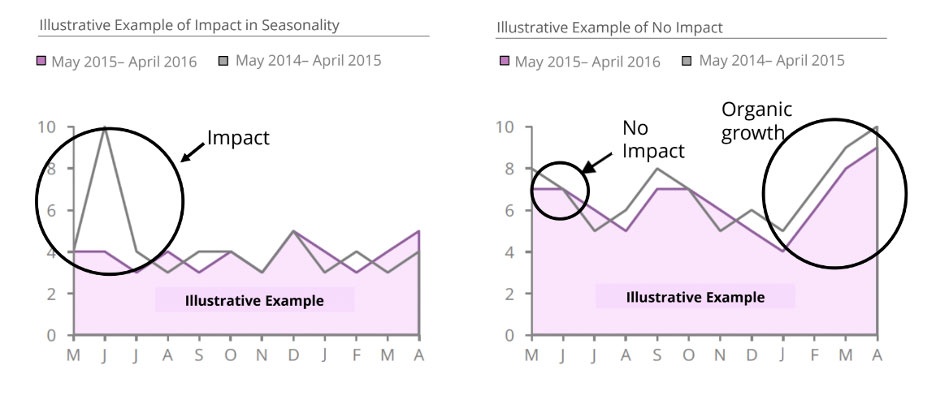
Measuring the success of a destination marketing campaign.
In 2014 our proprietary software D2 – Digital Demand © was used by Koenig&Partners, Communication and Creative Agency in Ecuador and Ecuadorian Ministry of Tourism to assess the results of a specific marketing campaign – the travel brand launch of “All you need is Ecuador”.
All you need is Ecuador.
On the 11th of June 2014, The Ministry of Tourism launched an international brand campaign that went viral in 12 cities worldwide and seven cities in Ecuador alone.
They placed 6m tall letters in major touristic sights of each city. These letters, put together, make up the phrase “ALL YOU NEED IS ECUADOR”, the slogan of a tourism marketing campaign that highlights the unmatched supply of tourism attractions this South American country has to offer. Each letter had a different design representing a product, artistic expression, activity or attraction of Ecuador. The Ministry of Tourism selected these designs, taking into consideration each city’s target audience. Each letter had a quick response (QR) code, a web address and a hashtag (#), inviting the audience to interact with this campaign and determine what the letters mean.
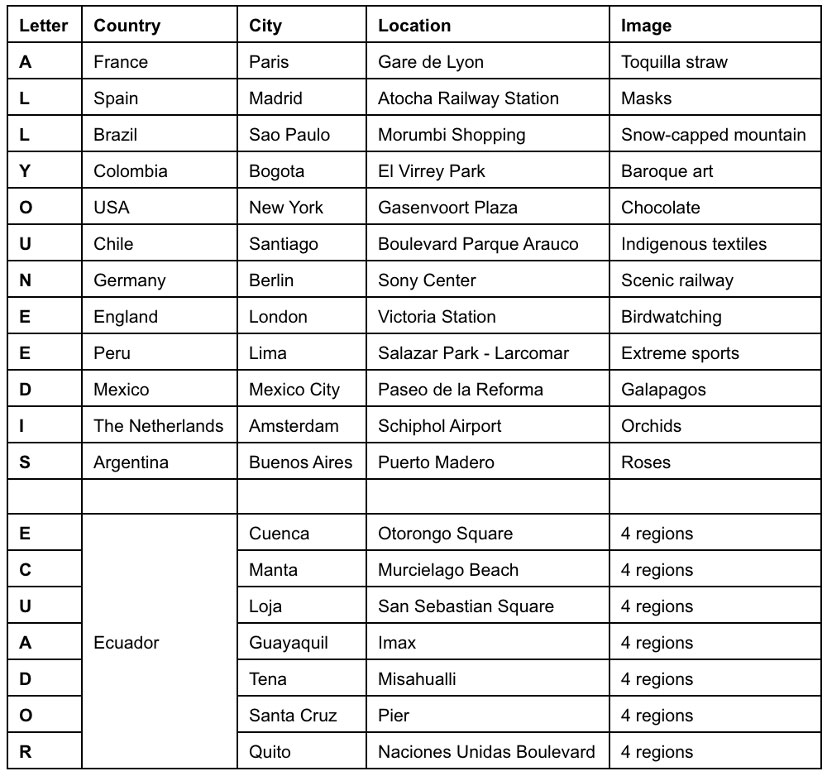
Measurement of the impact.
Koenig&Partners used the D2 – Digital Demand © destination market research tool to measure the impact of the international reach of the brand launch to assess the impact of the campaign.
The impact was measured by the online searches performed by global citizens towards Ecuador, using differential analysis between the data of 2014 and 2015.
The findings.
In 2014, when the campaign was launched, D2 – Digital Demand © search behaviour research showed that the brand launch caused an increase in searches by 35% worldwide in June.
D2 – Digital Demand © allows geolocating of the searches by country, region, or city. In the Ecuador case, we saw that the impact per market differs. For example, we noticed that interest decreased in Peru by -6.2%; at the same time, it increased in France by 70.7%. Other countries were more eager to find out extra information about Ecuador than neighbouring countries or inland cities.
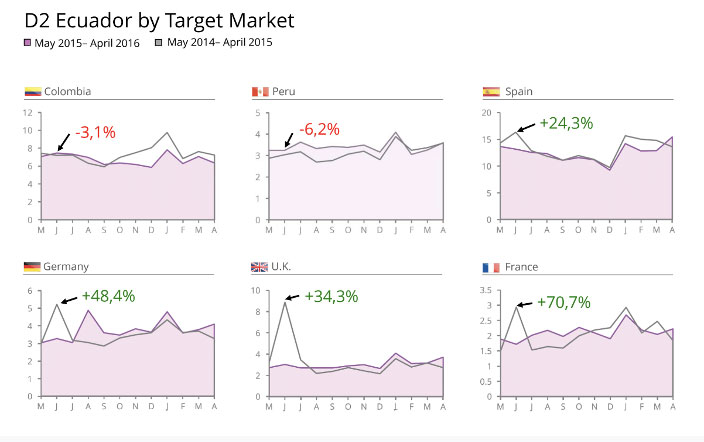
Search insights revealed that tourism brandtags (selected keywords that appear as the most searched online for countries, regions, and cities in one of the chosen dimensions (tourism, talent, investment, exports, general reputation)) that were positively impacted were Touristic information, Gastronomy, Beaches and History. These were the areas people were the most interested in searching about Ecuador. This could be because different types of information about Ecuador were promoted at each site where letters were placed.
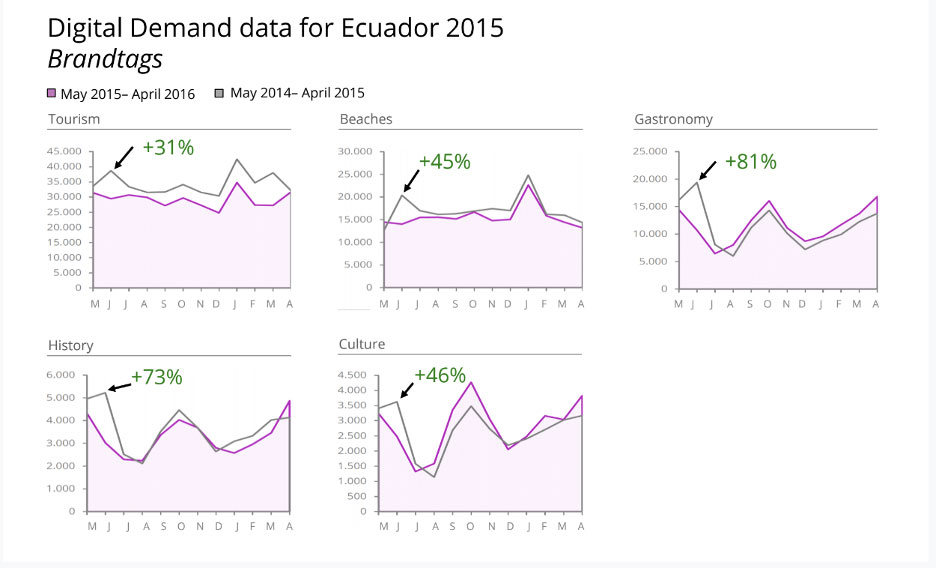
In this case study, we see no visible positive impact in overall Ecuador touristic appeal in the medium and long run. Nevertheless, there still could be a positive effect on tourist arrivals in that year or next. To measure the success of this destination marketing campaign, we need to understand the KPI’s introduced before the launch. We saw the short-term impact on the appeal of Ecuador as a travel destination in June when there is a spike in searches, but as we see the rest of the year compared to the next year, no “spikes” are evident.
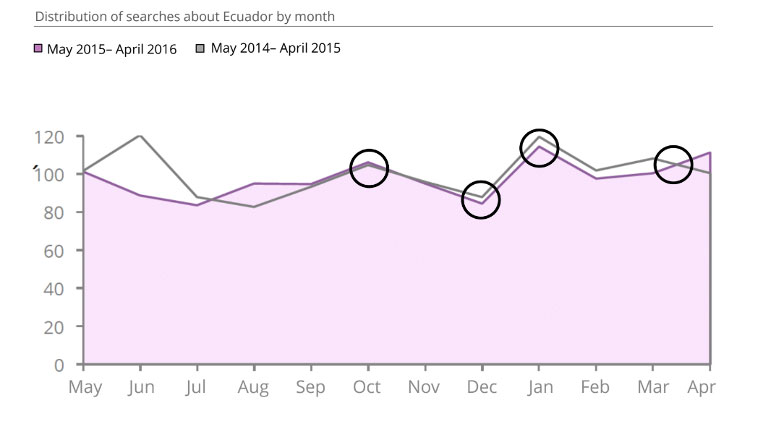
Destination marketing campaign analysis. Takeaway.
Differential analysis of searches is the new way of measuring the impact of marketing activities. In this case, specific campaigns to understand their effectiveness in terms of lasting and volume of interactions.
Strategically, when thinking of a place brand marketing campaign, it is always essential to assess their actual return – it doesn’t matter how many people see something; it is real action that matters.
We hope you found this destination research example interesting and that it made you think about the importance of “search” in today’s destination marketing.
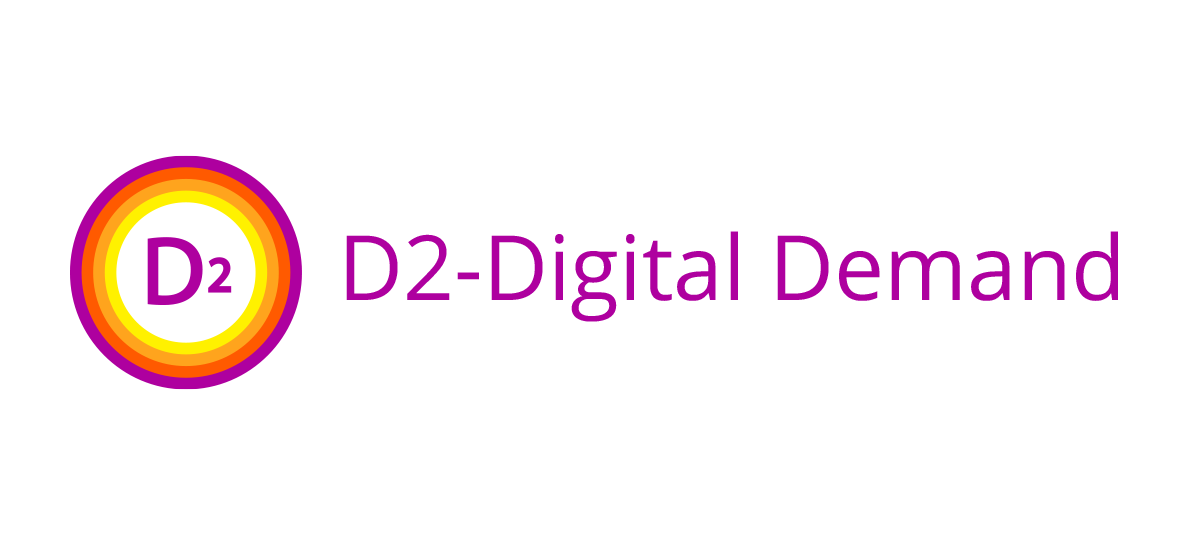
D2 – Analytics search analysis tool D2 – Digital Demand © can analyse any country, region, or city marketing campaign effectiveness! Let us know if you’re interested in scheduling a call and seeing the software presentation: hello@d2analytics.io or +371 62102353.
Other D2 - Analytics news and stories, you might be interested in:
April 25, 2021
Introducing NEW tool: D2 – Crisis Mode
April 8, 2021
D2 – Digital Demand ©, results may surprise you
January 4, 2021
Who’s managing the Digital Identity of nations and places?
May 27, 2020
New studies: Covid-19 impact on destinations
December 15, 2019
NEW product: D2 – Digital Supply software
September 23, 2017
New: D2 – Live Quanti software
March 12, 2015

